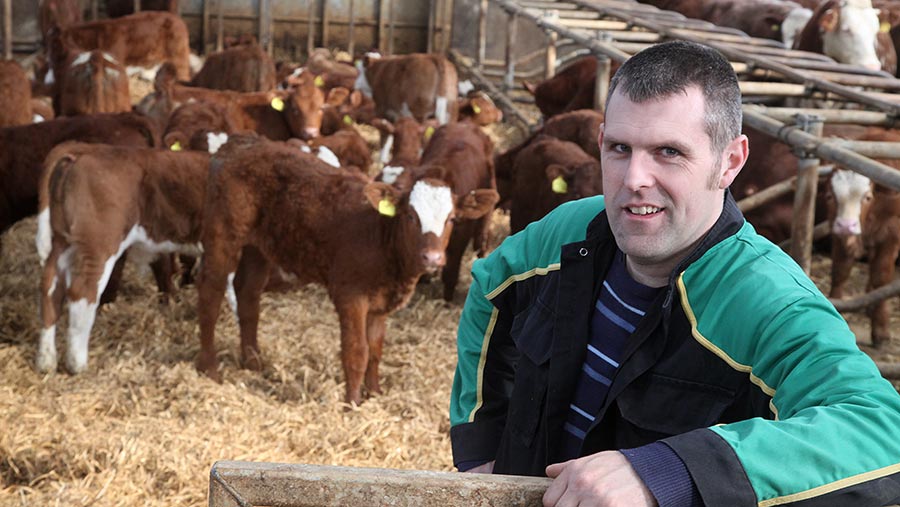Farmer Focus: Cows seem to be enjoying their rock salt
 © Ken Amer
© Ken Amer It has been a wet winter, which we can expect in Orkney, but even by Orkney’s standards, February has been a miserable month.
Too many days of wind and rain make doing the daily routine so much harder. The weather has only been fit to calve cows inside.
Last spring seems like a distant memory now, but most of the cows were at grass in April, so I decided to put the bulls in 15 days earlier.
See also: Why calving ease should be suckler herd priority
The scanning results were the same as previous years, but I expected the calving to be a bit more spread out, with not so much happening in the first three weeks. As I write this, we are 25 days into calving and 67 of the 100 cows have calved.
With so much rain and an open slurry lagoon, I had to get a contractor in to get rid of some dirty water. It’s the first time I’ve ever had to spread over fences while driving along roads and I’m not alone.
Last year was a great grass year, so thankfully there is plenty of fodder. I have just had a quick count of my own silage stocks and, if my calculations are right, I should have enough to last until the last week of July. If that isn’t enough, it will be time to give up.
I went to Sweden for a few days in February to start making plans for this year’s summer trip.
One thing I noticed at some, if not all, of the farms we visited was the cows had access to salt. I asked one dairy farmer why and he answered: “Why do they sell crisps and nuts in the pub?”
“So you drink more,” is the reply. The more the cows drink, the more milk they will produce.
Ever since I started farming, our cows have been drinking each other’s urine during the winter months.
This is also a sign they need salt. As soon as I came home, I ordered some rock salt. They have had access to it now for a week and seem to be enjoying it.
Steven Sandison farms 100 Simmental and Salers-cross cows on the Orkney Islands in partnership with his wife, Lorraine. They have a small flock of sheep and grow 8ha of spring barley. Making the most of grass is a priority.
